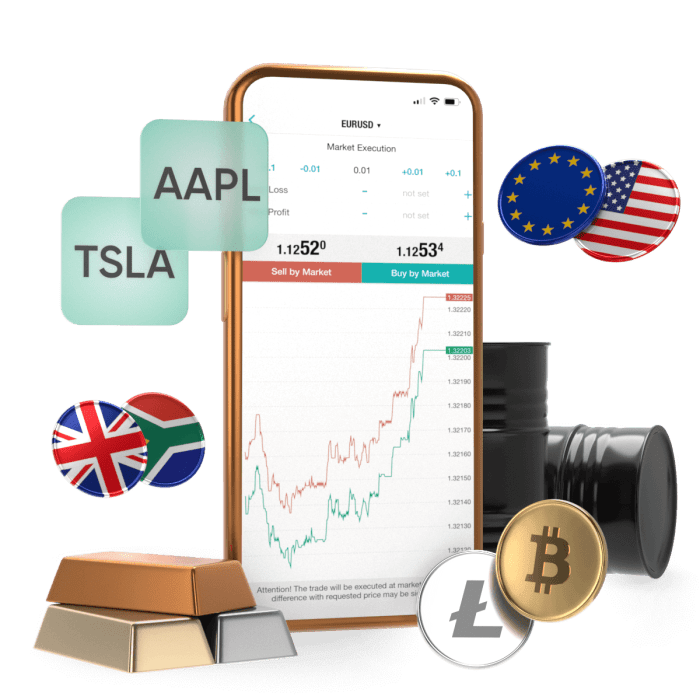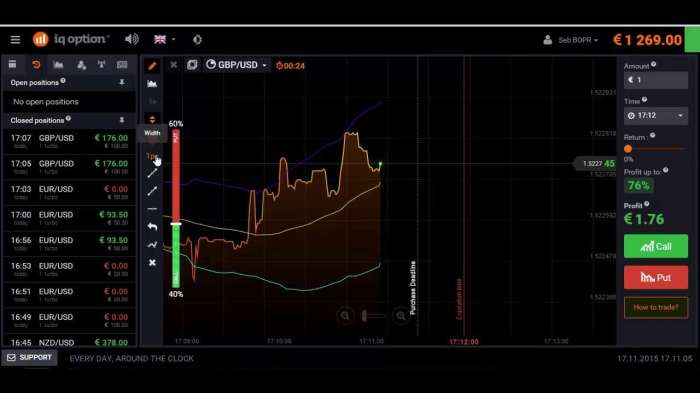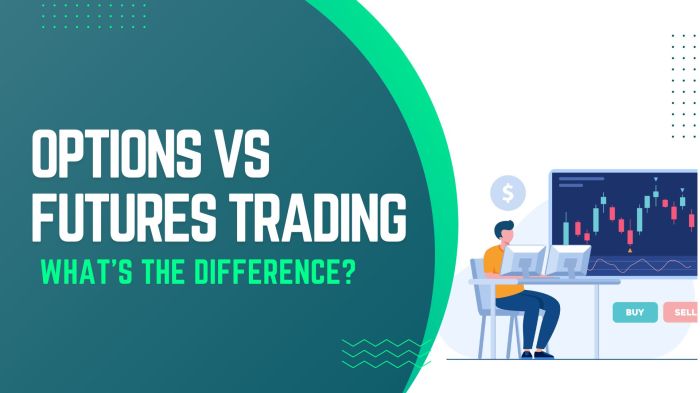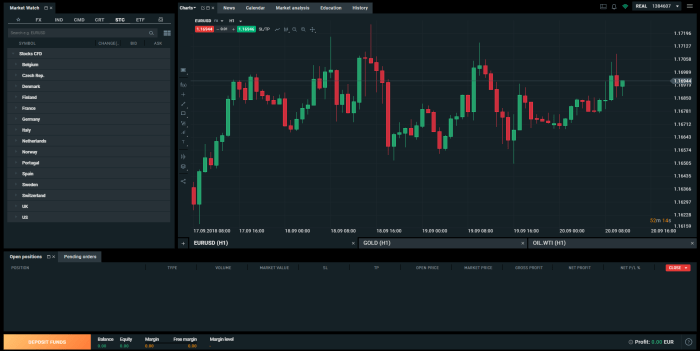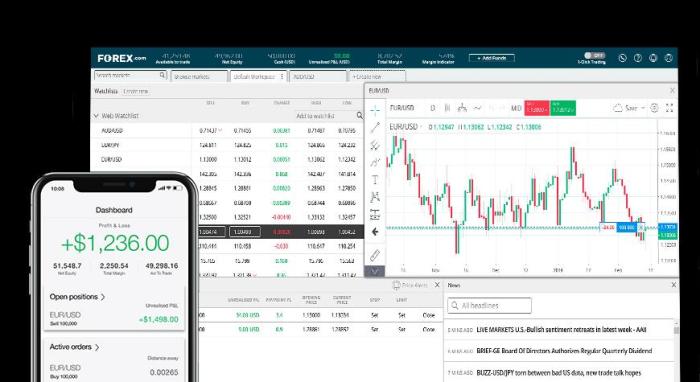
UK Forex Trading Brokers: Navigating the world of foreign exchange trading in the UK can feel like stepping into a whirlwind of complex regulations, diverse broker types, and a sea of trading platforms. But don’t worry, this isn’t some impenetrable fortress guarded by jargon-slinging dragons. We’re here to break down the essentials, helping you understand the landscape and find the broker that’s the perfect fit for your trading style and risk tolerance. From understanding the regulatory bodies overseeing these brokers to deciphering the differences between ECNs, market makers, and STP brokers, we’ll equip you with the knowledge to make informed decisions.
This guide will explore the various account types, trading platforms, fee structures, and leverage options available. We’ll also delve into the crucial aspects of customer support and security measures, ensuring you can trade with confidence knowing your funds and data are protected. Get ready to demystify the world of UK forex trading brokers and discover the best strategies for success.
Regulatory Landscape of UK Forex Trading Brokers
The UK boasts a robust and well-regarded regulatory environment for forex trading, offering a high level of investor protection. This framework, overseen by several key authorities, aims to maintain market integrity, prevent fraud, and ensure fair dealing for all participants. Understanding this regulatory landscape is crucial for both brokers and traders operating within the UK.
Regulatory Bodies Overseeing UK Forex Brokers
The primary regulatory body for forex brokers in the UK is the Financial Conduct Authority (FCA). The FCA is an independent body responsible for regulating financial services, including investment firms that deal in foreign exchange. While the FCA is the main player, other regulatory bodies might have a role depending on the specific activities of the broker. For instance, the Prudential Regulation Authority (PRA) may oversee aspects of larger firms’ activities. The interplay between these regulators ensures comprehensive oversight of the UK forex market.
Licensing Requirements for UK Forex Brokers
To operate legally as a forex broker in the UK, firms must obtain authorization from the FCA. This involves a rigorous application process, including demonstrating sufficient financial resources, robust risk management procedures, and a commitment to compliance with FCA rules and regulations. The FCA scrutinizes the firm’s business plan, management team, and operational capabilities before granting a license. Failure to meet these stringent requirements results in the denial of a license. Ongoing compliance with FCA rules is also essential for maintaining authorization.
Comparison of UK Regulatory Frameworks with Other Major Financial Centers
The UK’s regulatory framework for forex trading is generally considered to be among the strictest and most comprehensive globally. Compared to regions like the US (with the Commodity Futures Trading Commission, CFTC, and the National Futures Association, NFA), or Australia (with the Australian Securities and Investments Commission, ASIC), the UK’s FCA places a significant emphasis on investor protection and transparency. While other centers have their own robust regulations, the UK’s approach often sets a high benchmark for regulatory standards, particularly concerning client segregation of funds and reporting requirements. However, the specifics of each regulatory regime differ, leading to varying levels of oversight and protection.
Comparison of Key Regulatory Aspects of UK Forex Broker Regulators
| Regulatory Body | Key Focus | Licensing Requirements | Client Protection Measures |
|---|---|---|---|
| Financial Conduct Authority (FCA) | Investor protection, market integrity, and fair dealing. | Authorization, capital adequacy, fit and proper persons test, robust risk management systems. | Client asset segregation, compensation scheme (FSCS), robust complaints handling procedures. |
| Prudential Regulation Authority (PRA) | Financial stability of authorized institutions. | Authorization for significant firms, capital adequacy requirements, stress testing, governance and risk management. | Indirect client protection through the supervision of firm solvency. |
| Financial Services Compensation Scheme (FSCS) | Compensation for eligible clients in case of broker insolvency. | Not a regulator, but a compensation scheme. | Up to £85,000 compensation per eligible client. |
Types of UK Forex Trading Brokers
Navigating the world of UK forex trading brokers can feel like wading through a swamp of jargon and confusing options. Understanding the different types of brokers is crucial to finding the right fit for your trading style and risk tolerance. This section will break down the key categories, highlighting their pros and cons to help you make an informed decision.
Essentially, UK forex brokers can be broadly categorized into three main types: Market Makers, Electronic Communication Networks (ECNs), and Straight Through Processing (STP) brokers. Each operates differently, impacting your trading experience and potential profitability.
Enhance your insight with the methods and methods of forex trading seminars near me.
Market Maker Brokers
Market maker brokers act as the counterparty to your trades. This means they are essentially betting against you. They profit from your losses and provide tighter spreads (the difference between the bid and ask price). However, this can also lead to potential conflicts of interest, especially during periods of high volatility.
Advantages of Market Maker Brokers:
- Generally offer tighter spreads, leading to lower trading costs.
- Easy to use platforms, often suitable for beginners.
- Quick order execution.
Disadvantages of Market Maker Brokers:
- Potential for conflicts of interest as the broker is betting against you.
- May requotes or reject orders during periods of high volatility.
- Less transparency compared to ECN/STP brokers.
Examples of reputable UK Market Maker Brokers:
- Many large, well-established brokers operate as market makers, but it’s crucial to independently verify their regulatory status and reputation before engaging with them. Specific names are omitted to avoid endorsement, and it is advised to conduct thorough research before selecting a broker.
ECN Brokers
ECN brokers act as a facilitator, connecting you directly to other market participants (banks, institutions, and other traders). This typically leads to greater transparency and potentially better pricing, although spreads might be slightly wider than with market makers.
Advantages of ECN Brokers:
- High level of transparency – you see the actual market depth and liquidity.
- Potentially better pricing due to direct market access.
- Reduced risk of conflicts of interest.
Disadvantages of ECN Brokers:
- Wider spreads compared to market makers.
- May require larger minimum deposits.
- Can be more complex to use for beginners.
Examples of reputable UK ECN Brokers:
- Again, it is important to perform your own due diligence and not rely solely on examples provided. The landscape is constantly evolving, and naming specific brokers here would constitute an endorsement that is not appropriate.
STP Brokers
STP brokers route your orders directly to liquidity providers (banks and other institutions) without intervention. They aim to offer a balance between the tight spreads of market makers and the transparency of ECN brokers.
Advantages of STP Brokers:
- Generally offer good pricing and fast execution.
- More transparency than market makers.
- Lower risk of requotes or order rejection.
Disadvantages of STP Brokers:
- Spreads may be slightly wider than market makers, but narrower than some ECNs.
- The level of transparency can vary depending on the specific broker.
Examples of reputable UK STP Brokers:
- Thorough research is essential before selecting any broker. The absence of specific broker names here is intentional, to prevent any implied endorsement.
Broker Type Suitability for Different Trading Styles
| Broker Type | Scalping | Day Trading | Swing Trading |
|---|---|---|---|
| Market Maker | Potentially Suitable (check for requotes) | Potentially Suitable (check for requotes) | Suitable |
| ECN | Generally Suitable | Generally Suitable | Suitable |
| STP | Generally Suitable | Generally Suitable | Suitable |
Account Types and Trading Platforms Offered by UK Forex Brokers
Choosing the right forex trading account and platform is crucial for a successful trading journey. UK forex brokers offer a variety of account types catering to different trading styles and experience levels, coupled with a selection of powerful trading platforms. Understanding these options is key to making an informed decision.
Account Types Offered by UK Forex Brokers
The account type you choose will significantly impact your trading experience. Factors like minimum deposit, leverage, and available features vary considerably. Let’s examine some common account types.
- Standard Accounts: These are typically the most common type, offering a balance between features and accessibility. They usually require a higher minimum deposit than other account types and provide access to a full range of trading instruments and tools. Leverage is often high, though this is subject to regulatory changes.
- Mini Accounts: Designed for beginners or those with smaller capital, mini accounts require a lower minimum deposit. The lot size is smaller, making them ideal for learning and practicing trading strategies with reduced risk. The features and functionalities are often similar to standard accounts but with adjusted lot sizes.
- Micro Accounts: These accounts take the concept of low minimum deposits and smaller lot sizes even further. They are perfect for new traders wanting to dip their toes into forex trading with minimal financial commitment. They are usually limited in terms of advanced tools and features.
- Islamic Accounts (Swap-Free Accounts): These accounts comply with Islamic finance principles by eliminating swap fees (interest charges) typically associated with overnight positions. They often operate on a profit-and-loss sharing basis and are suitable for Muslim traders who wish to adhere to their religious beliefs.
Trading Platforms Offered by UK Forex Brokers
The trading platform is your interface to the forex market. Choosing the right one is essential for efficient and comfortable trading. Popular platforms offer diverse features and functionalities.
Several prominent platforms dominate the UK forex market. Each boasts unique strengths and caters to different trader preferences. Let’s look at some of the most popular options.
Further details about forex ai trading bot is accessible to provide you additional insights.
| Platform | Features | Pros | Cons |
|---|---|---|---|
| MetaTrader 4 (MT4) | Extensive charting tools, automated trading (Expert Advisors), wide range of indicators, large community support. | User-friendly, widely adopted, robust charting capabilities, extensive add-ons. | Can feel outdated compared to MT5, limited advanced order types in some brokers’ implementations. |
| MetaTrader 5 (MT5) | Improved charting, enhanced order types, more advanced technical indicators, built-in economic calendar. | More modern and feature-rich than MT4, improved backtesting capabilities, wider range of order types. | Steeper learning curve than MT4, less community support in some areas compared to MT4. |
| cTrader | Advanced charting tools, fast execution speeds, excellent for scalping and algorithmic trading. | Fast execution, intuitive interface, strong focus on algorithmic trading, excellent charting. | Smaller community compared to MetaTrader platforms, less widely available across all brokers. |
Spreads, Commissions, and Fees of UK Forex Brokers: Uk Forex Trading Brokers

Understanding the cost structure of forex trading is crucial for maximizing profits. Spreads, commissions, and other fees significantly impact your overall trading expenses. Choosing a broker with a transparent and competitive fee structure is therefore a key decision in your forex trading journey. Let’s delve into how these costs work and how to compare them across different UK brokers.
Impact of Spreads, Commissions, and Fees on Trading Costs
Spreads represent the difference between the bid and ask price of a currency pair. Commissions are separate fees charged per trade. Other fees might include overnight financing charges (swap fees), inactivity fees, and deposit/withdrawal fees. These costs, cumulatively, eat into your potential profits. A wider spread means a higher cost per trade, while high commissions add directly to your expenses. Minimizing these costs is paramount for profitability, especially for frequent traders or those trading smaller lot sizes. For example, a 1-pip spread on a 1 standard lot trade (100,000 units) of EUR/USD translates to a direct cost of £10 (assuming a GBP base account and a pip value of £10). This doesn’t include any commissions.
Comparison of Fee Structures Across UK Forex Brokers
Different UK forex brokers employ varying fee structures. Some brokers offer tight spreads but charge commissions, while others offer commission-free trading with wider spreads. Some may charge fees for specific services, such as account management or research. It’s vital to compare the total cost of trading across different brokers, not just focusing on one aspect like spreads alone. For instance, a broker offering a 0.5-pip spread but a £5 commission per trade might be more expensive than a broker offering a 1-pip spread with no commission for higher volume trades. The optimal choice depends on your individual trading style and volume.
Calculating Total Trading Cost, Uk forex trading brokers
Calculating the total trading cost involves summing up all applicable fees. This includes the spread cost (the difference between the entry and exit price, considering the pip value), commissions (per trade), and any other applicable fees.
Total Trading Cost = (Spread Cost) + (Commission) + (Other Fees)
For example, if you buy 1 lot of EUR/USD at a spread of 1 pip and a commission of £5, and the pip value is £10, your total cost for this trade is £15 (£10 spread + £5 commission). If you close the trade at a profit, this cost will be deducted from your profit. If you close the trade at a loss, it’s added to your loss. Accurate calculation of these costs is essential for effective risk management.
Spread and Commission Structures of UK Forex Brokers
The following table illustrates the typical spread and commission structures of five hypothetical UK forex brokers. Note that these are examples and actual spreads and commissions can vary depending on market conditions and account type. Always check the latest information on a broker’s website.
| Broker | EUR/USD Spread (Typical) | Commission per Lot | Other Fees (Examples) |
|---|---|---|---|
| Broker A | 0.5 pips | £5 | Overnight financing charges, inactivity fee after 3 months |
| Broker B | 1 pip | £0 | Overnight financing charges |
| Broker C | 0.8 pips | £2 | Overnight financing charges, withdrawal fee of £10 |
| Broker D | 1.2 pips | £0 | No additional fees |
| Broker E | 0.7 pips | £3 | Overnight financing charges, inactivity fee after 6 months |
Leverage and Margin Requirements for UK Forex Trading
Navigating the world of forex trading in the UK requires a solid understanding of leverage and margin. These two concepts are intrinsically linked and significantly impact your trading experience, both in terms of potential profits and, crucially, potential losses. This section will break down these concepts, explain the regulatory limits in place, and highlight the inherent risks involved.
Leverage and margin are fundamental tools in forex trading, allowing traders to control larger positions than their account balance would normally permit. However, this amplified potential for profit comes with a corresponding amplification of risk. Understanding these mechanics is essential for responsible trading.
Leverage in Forex Trading
Leverage is essentially borrowed capital provided by your broker to amplify your trading power. It’s expressed as a ratio, for example, 1:50, meaning you can control a position worth £50 for every £1 in your account. While leverage magnifies potential gains, it equally magnifies potential losses. A small market movement against your position can quickly wipe out your initial investment and lead to significant debt.
Margin Requirements
Margin is the amount of money you need to deposit in your trading account to open and maintain a leveraged position. It acts as collateral to secure the borrowed capital from your broker. The margin requirement is calculated as a percentage of the total position size. For instance, with a 1:50 leverage and a £5000 position, the margin requirement might be 2%, requiring a £100 deposit. If the market moves against you and your account equity falls below a certain level (the margin call), your broker may issue a margin call, requiring you to deposit more funds or close your position to avoid further losses.
Leverage Limits Imposed by UK Regulators
The Financial Conduct Authority (FCA), the UK’s financial regulator, sets limits on the leverage available to retail forex traders. These limits aim to protect retail clients from excessive risk. Currently, the maximum leverage allowed for major currency pairs is typically capped at 1:30. This means that a trader can control a position 30 times the value of their deposited capital. For minor currency pairs, the leverage limit may be even lower. These limits are subject to change, so always check with your broker for the most up-to-date information.
Risks Associated with High Leverage Trading
High leverage trading significantly increases the risk of substantial losses. Even small price movements can lead to significant losses that quickly exceed your initial investment. This can lead to margin calls, account liquidation, and potentially substantial debt. The higher the leverage, the greater the risk.
- Rapid Account Depletion: A small adverse price movement can lead to a large loss, potentially wiping out your entire trading account balance.
- Margin Calls and Forced Liquidation: If your losses reach a certain point, your broker may issue a margin call, demanding additional funds. Failure to meet the margin call can result in the forced liquidation of your positions at potentially unfavorable prices.
- Increased Stress and Emotional Trading: The pressure of potentially large losses can lead to impulsive and irrational trading decisions, further exacerbating losses.
- Debt Accumulation: In cases of significant losses exceeding your initial investment, you may accumulate substantial debt.
Examples of Leverage’s Impact on Profits and Losses
Let’s illustrate the impact of leverage using two examples:
- Scenario 1: Profitable Trade
A trader uses 1:30 leverage to buy £3000 worth of EUR/USD. The price moves favorably by 1%. The profit is £30 (1% of £3000). However, because of the leverage, the percentage return on the trader’s initial investment is much higher. If the trader invested only £100 (the margin requirement with 1:30 leverage), the return is 30% (£30 profit / £100 investment). - Scenario 2: Unprofitable Trade
The same trader uses 1:30 leverage to buy £3000 worth of EUR/USD. The price moves unfavorably by 1%. The loss is £30. Again, the percentage loss on the trader’s initial investment is magnified. With a £100 investment, the loss is 30%.
These examples demonstrate how leverage amplifies both profits and losses. While it can lead to significant returns, it equally increases the risk of substantial losses. Careful risk management and a thorough understanding of leverage are paramount for successful forex trading.
Customer Support and Security Measures of UK Forex Brokers
Choosing a UK forex broker involves careful consideration of not only trading conditions but also the level of customer support and the security measures in place to protect your investments and personal data. A reliable broker will offer multiple avenues for assistance and robust security protocols to safeguard your assets.
Customer Support Channels
UK forex brokers typically provide a range of customer support channels to cater to diverse trader needs and preferences. These channels ensure accessibility and prompt responses to queries or issues. The availability and responsiveness of these channels can significantly impact the overall trading experience.
Security Measures for Client Funds and Data
Protecting client funds and data is paramount for reputable UK forex brokers. Stringent security measures are implemented to mitigate risks associated with fraud, cyberattacks, and data breaches. These measures are crucial for maintaining trust and ensuring the safety of trader investments. These measures often include segregation of client funds, encryption technologies, and adherence to regulatory guidelines.
Comparison of Customer Service Quality
The quality of customer support varies across different UK forex brokers. Some brokers are known for their highly responsive and knowledgeable support teams, while others may have slower response times or less helpful staff. Factors influencing customer service quality include the availability of multilingual support, the expertise of support agents, and the efficiency of the complaint resolution process. Trader reviews and independent assessments can offer insights into the customer service experience provided by various brokers.
Customer Support Options and Security Certifications
The following table summarizes the customer support options and security certifications of selected UK forex brokers. Note that this is not an exhaustive list, and the availability of specific features may change. Always verify the latest information on the broker’s website.
| Broker | Phone Support | Email Support | Live Chat | Security Certifications |
|---|---|---|---|---|
| Example Broker A | Yes | Yes | Yes | FCA regulated, PCI DSS compliant |
| Example Broker B | Yes | Yes | Yes | FCA regulated, ISO 27001 certified |
| Example Broker C | Yes | Yes | No | FCA regulated |
Concluding Remarks

So, there you have it – a clearer picture of the UK forex trading broker landscape. Remember, choosing the right broker is a crucial first step in your forex trading journey. Don’t rush the process. Carefully consider your trading style, risk appetite, and the features offered by different brokers. By understanding the regulatory environment, the types of brokers available, and the intricacies of fees and leverage, you’ll be well-equipped to navigate the market and make smart, informed decisions. Happy trading!
